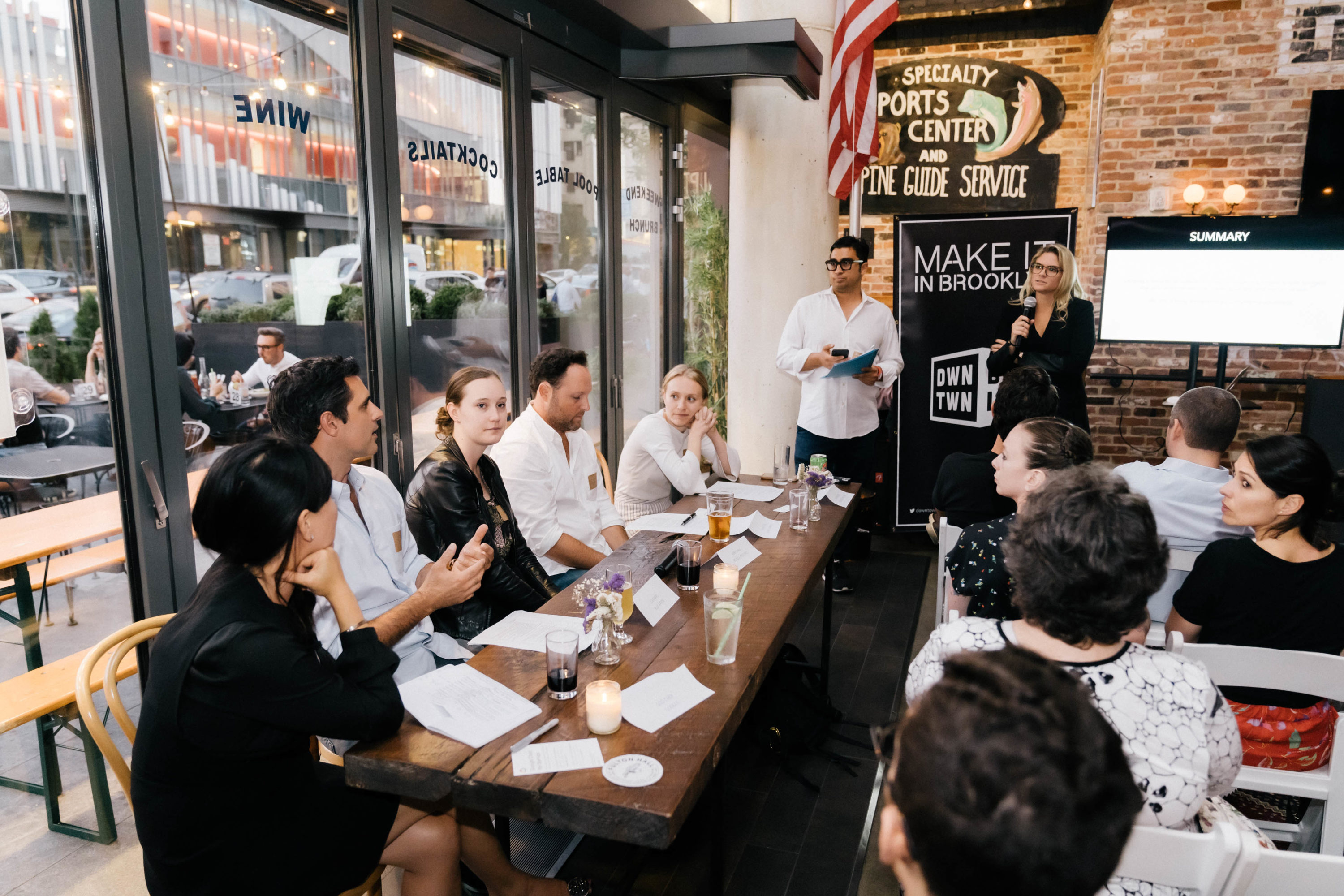The future of farming: How urban agriculture could make big money

Contestants give their pitch to the panel of judges. Photo courtesy of the Downtown Brooklyn Partnership.
Downtown Brooklyn may seem like an unlikely staging ground for the future of farming — but at Gotham Market Hall in late September, 75 attendees at a “Shark Tank”-style pitch contest bore witness to just that.
The Future of Farming Pitch Contest featured five finalists from the urban agriculture industry, each presenting a three-minute pitch, complete with slideshow and video, to five discerning judges armed with follow-up questions.
At stake: $5,000 in seed money, $20,000 worth of server storage credits for Google’s Cloud for Startups and a free sit down with a consulting firm.
